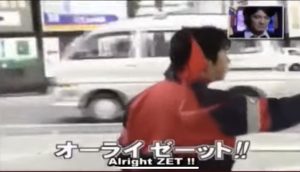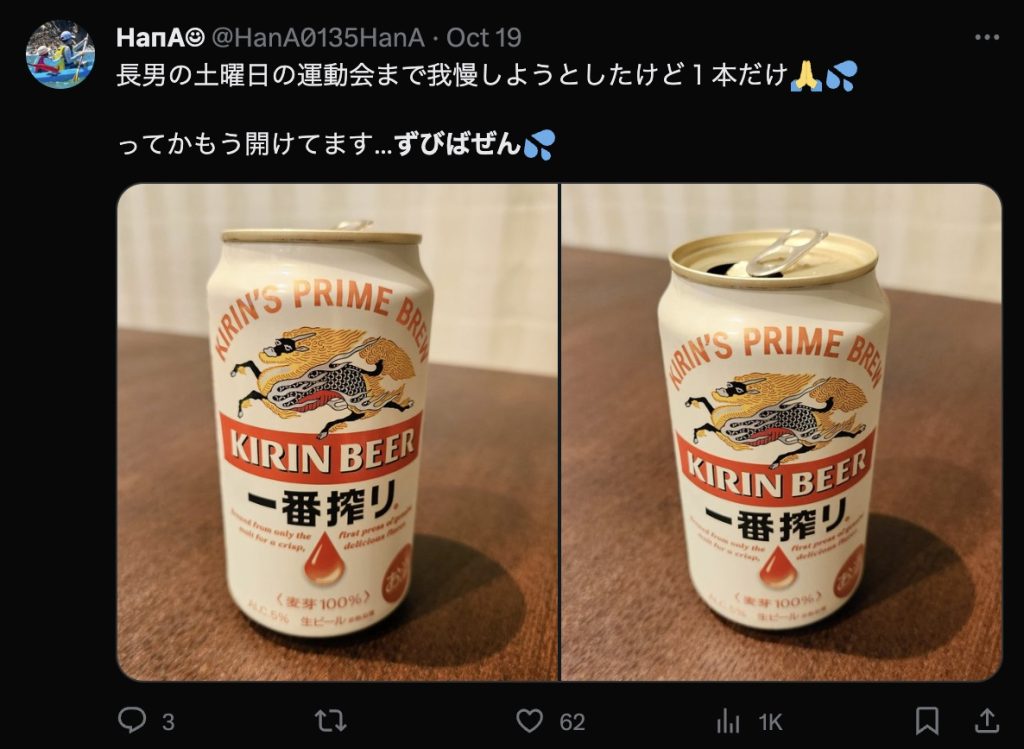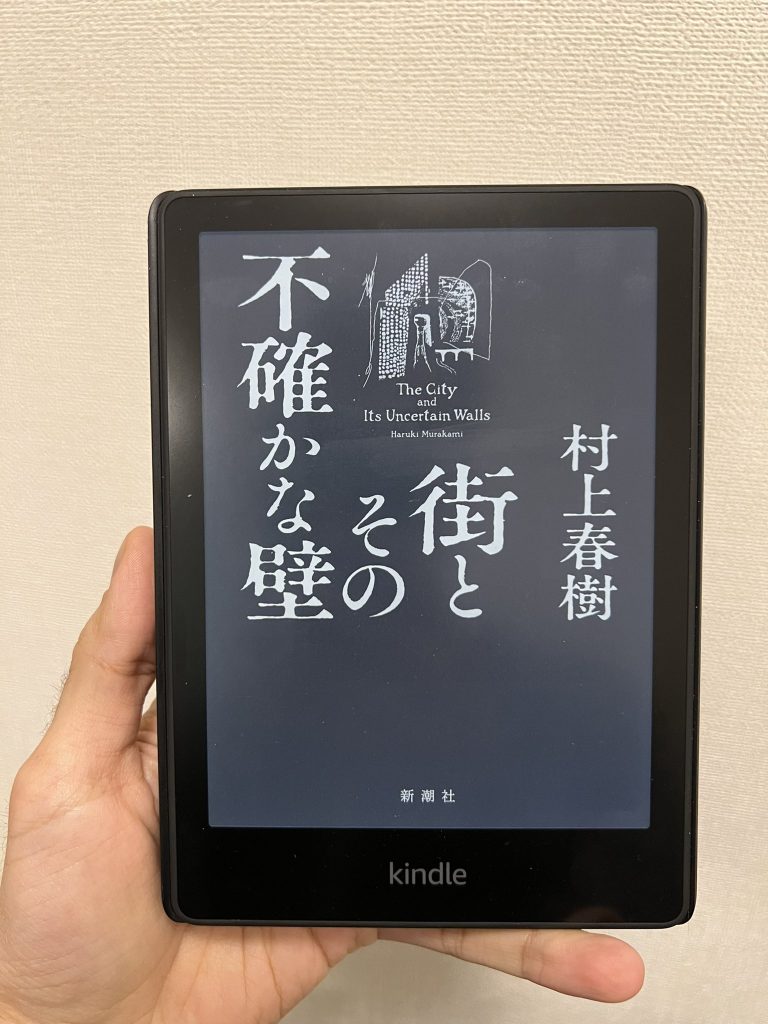I ran out of space over at the newsletter this month, so I thought I’d share the いろいろ section on the blog instead. Podcast link at the bottom!
– The kanji of the year is 税 (zei, tax). Boring, but topical. Read more here. The only thing I could think of was Mizuki Ichiro yelling ゼーット! on Gaki no Tsukai’s 笑ってはいけない罰ゲーム. I believe his first appearance was the police-themed 2006 show, but he showed up in a number of seasons after that in increasingly unhinged situations. Check out the video on this tweet before it disappears.

– This is a solid article on the current state of homebrewing in the U.S. A lot of the details ring true based on my experience in Chicago participating in the odd club out in a city full of really well organized brewing clubs. You can make some really good friends through the hobby…which is one idea the article hints at but never really drives home. There’s a similar passion for craft beer here in Japan, but it seems to be dedication to a specific small brewery or bar, and I’m not sure it has the same level of community. I found a great little spot called Buckets in Musashi-Kosugi when I was studying there. It was small enough that when I asked the proprietors where I should go for beers in Osaka, I got a chorus of answers from the other customers. Still looking for the perfect spot in Osaka, but there are some good options.
– The numbers are in: I spent just over 600 hours playing video games this year. 25 whole days, which is a frightening thought to think. Almost an entire month. This is by far the biggest gaming year of my life. What memories stick with me? Spending 40 hours finally finishing the original Final Fantasy VII when I caught COVID in January, only to be disappointed by the remake when I finally got to it in October before my PS+ subscription expired. Floating down into the Depths for the first time in Tears of the Kingdom. Emerging from Stormveil Castle into the serenity of Liurnia of the Lakes. Spending an hour on the character creation screen in Baldur’s Gate 3. I think my gaming goal for 2024 will be to play more mindfully, but 2023 was an awfully good year for games. It’s difficult to hold it against anyone for playing a lot this year.
@howtojapanese
– What am I looking forward to cramming into the remaining two weeks? More Baldur’s Gate 3. Some co-op Elden Ring here and there, helping folks get by the big bads. Some time with Super Mario Wonder, which I haven’t really started yet, and working my way through Super Mario Brothers RPG. But I’m taking a train ride for New Year’s, and I’ve had this image of playing Final Fantasy Pixel Remaster on the ride. I’m looking forward to it.
– I have not had good 福袋 (fukubukuro, lucky bags) luck this season. I was not selected for Muji’s drawing, and I forgot to enter Kaldi’s. I may have to pick up one at Tully’s or Doutor, but for now I have entered the one at McDonald’s and will see how I fare on Christmas Day.
– I’m moving apartments in January, and I had to fax my contract cancelation notice to the property manager the other day. It cost a mere 50 yen at the closest convenience store. What an astounding deal. You could quadruple that price and I’d still think it was a good deal. I’m not sure where I’d send a fax in the U.S. or how much it would cost, but I’m sure it would be far less convenient than walking 50 meters and dropping a single coin into a machine. I was impressed. Although the other side of this story is that the property manager would not accept a scanned copy of the cancelation notice sent via email.
– I did a mediumish thread on preservation in Tokyo and New Orleans after David Marx shared the demolition of a Meiji-era brick warehouse that had been turned into a bar. Sad times for the preservation crowd in Japan.
– For the second year in a row, I visited Kiyomizu-dera on November 28 to see the fall leaves. It didn’t disappoint.
– This is a very funny TikTok.
@chedurena Ichiro Suzuki was pitching gas!!!! Tour Dates: New York, NY 11/27 Springfield MA 12/8-9 New Brunswick, NJ 12/14-16 Bridgeport, CT 12/21-23 Boston, MA 1/12/24 tickets at chedurena.com Or link in bio #greenscreenvideo
– The Thanksgiving 休日 alignment this year was incredible. I had to do it up. This is what my spread looked like. I don’t think I’d actively take a day off to celebrate, but when it comes around again I’ll be ready, and I can absolutely see putting some of these dishes together again for a special occasion.

– And don’t forget to check out this month’s podcast. I examined the phrase そうこうしているうちに by way of an examination of the state of social media in Japan and their usefulness as language corpora.


